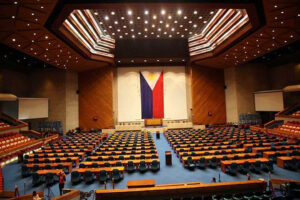A BILL seeking to overhaul the country’s budget system to limit annual appropriations to spending within a single fiscal year was filed in the House of Representatives last week.
Filed on June 30, House Bill No. 11 proposes to shift the budget system to an annual, cash-based setup instead of the current obligation-based model that allows for multi-year spending, in a bid to curb wasteful spending and speed up government disbursements.
Submitted by Leyte Rep. Ferdinand Martin G. Romualdez and Party-list Reps. Andrew Julian K. Romualdez and Jude A. Acidre, the measure would force government agencies to implement projects within the same fiscal year, pushing them to improve planning and avoid leaving funds unused.
“This will compel agencies to plan better, deliver faster and report clearer outcomes,” Mr. Romualdez said in a statement.
The proposal was first filed in the 19th Congress and was listed as a priority measure by the Marcos administration, but it languished in the House appropriations and Senate finance committees for more than two years.
While the bill seeks to limit the national budget’s validity to a single fiscal year, it allows a three-month extension in the following year to give agencies time to catch up on spending, according to a copy of the measure shared to reporters.
The proposal also seeks to require the Development Budget Coordination Committee to submit a “budget priorities framework” to the President every April, which would guide the government in drafting the national budget.
Each head of a government agency would also be required to submit an annual plan outlining its medium-term strategic priorities at both the national and regional levels, along with its proposed budget, to the Budget department, according to the measure.
The budget reform bill restricts the use of lump-sum or special purpose funds without clear timelines and project objectives, Mr. Romualdez said, limiting their use to disaster response and contingency reserves.
Unprogrammed appropriations would be capped at 3% of the proposed national budget under the bill, helping limit standby funds and tighten control over off-budget spending.
The Budget department would also be required to create and maintain a digital financial management system that would serve as a “single portal” for all government financial transactions, aimed at improving transparency and tracking of public fund disbursements.
Mr. Romualdez said the budget reform bill is part of a broader economic reform package to instill fiscal discipline within the government and institutionalize accountability in the national budget. — Kenneth Christiane L. Basilio

